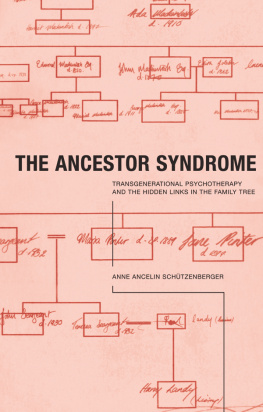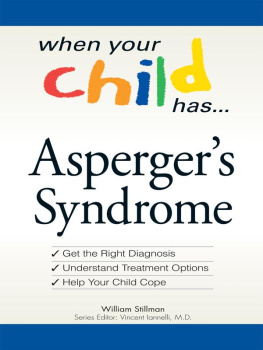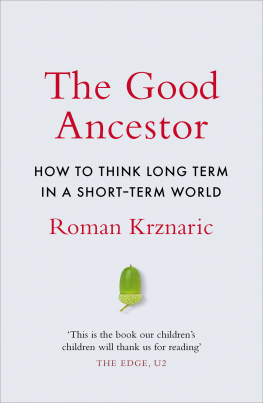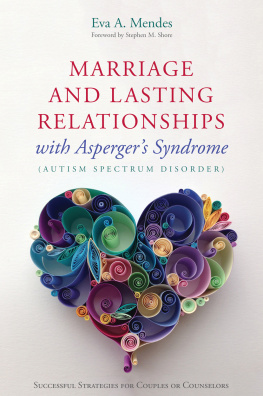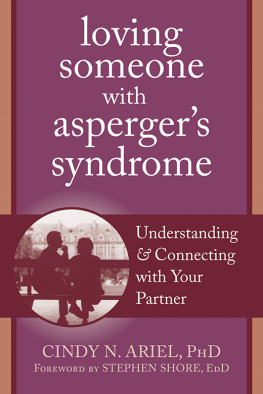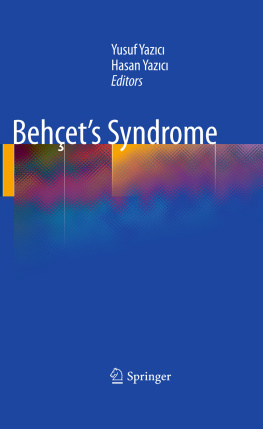Schutzenberger - The Ancestor Syndrome
Here you can read online Schutzenberger - The Ancestor Syndrome full text of the book (entire story) in english for free. Download pdf and epub, get meaning, cover and reviews about this ebook. year: 2014,1998, publisher: Taylor and Francis, genre: Home and family. Description of the work, (preface) as well as reviews are available. Best literature library LitArk.com created for fans of good reading and offers a wide selection of genres:
Romance novel
Science fiction
Adventure
Detective
Science
History
Home and family
Prose
Art
Politics
Computer
Non-fiction
Religion
Business
Children
Humor
Choose a favorite category and find really read worthwhile books. Enjoy immersion in the world of imagination, feel the emotions of the characters or learn something new for yourself, make an fascinating discovery.
- Book:The Ancestor Syndrome
- Author:
- Publisher:Taylor and Francis
- Genre:
- Year:2014,1998
- Rating:3 / 5
- Favourites:Add to favourites
- Your mark:
- 60
- 1
- 2
- 3
- 4
- 5
The Ancestor Syndrome: summary, description and annotation
We offer to read an annotation, description, summary or preface (depends on what the author of the book "The Ancestor Syndrome" wrote himself). If you haven't found the necessary information about the book — write in the comments, we will try to find it.
The Ancestor Syndrome — read online for free the complete book (whole text) full work
Below is the text of the book, divided by pages. System saving the place of the last page read, allows you to conveniently read the book "The Ancestor Syndrome" online for free, without having to search again every time where you left off. Put a bookmark, and you can go to the page where you finished reading at any time.
Font size:
Interval:
Bookmark:
In The Ancestor Syndrome, Anne Ancelin Schtzenberger shows how, as mere links in a chain of generations, we may have no choice in having the events and traumas experienced by our ancestors visited upon us in our own lifetime.
The book includes fascinating case studies and examples of genosociograms (family trees) to illustrate how her clients have conquered seemingly irrational fears, psychological and even physical difficulties by discovering and understanding the parallels between their own life and the lives of their forebears. The theory of invisible loyalty owed to previous generations, which may make us unwittingly re-enact their life events, is discussed in the light of ongoing research into transgenerational therapy.
First published in France as Ae, mes aeux!, this fascinating insight into a unique style of clinical work is already a best seller and will appeal to anyone working in the psychotherapy profession as well as to mental health professionals.
Anne Ancelin Schtzenberger is Professor Emeritus of Psychology at the University of Nice and co-founder of the International Association of Group Psychotherapy. She is also internationally renowned as a trainer in group psychotherapy and psychodrama.
The Ancestor Syndrome
Transgenerational psychotherapy and the hidden links in the family tree
Anne Ancelin Schtzenberger
Translated by Anne Trager

First published in the UK in 1998
by Routledge
27 Church Road, Hove, East Sussex BN3 2FA
Simultaneously published in the USA and Canada
by Routledge
711 Third Avenue, New York, NY 10017
Reprinted 1999, 2004, 2007 and 2009
Transferred to digital printing 2010
Routledge is an imprint of the Taylor & Francis Group, an Informa business
1998 Anne Ancelin Schtzenberger;
translation 1998 Anne Trager
Originally published in 1993 as Ae, mes aieux!: Liens transgnrationnels, secrets de famille, syndrome d'anniversaire et pratique du genosociogramme
Typeset in Sabon by Routledge
This publication has been produced with paper manufactured to strict environmental standards and with pulp derived from sustainable forests.
All rights reserved. No part of this book may be reprinted or reproduced or utilised in any form or by any electronic, mechanical, or other means, now known or hereafter invented, induding photocopying and recording, or in any information storage or retrieval system, without permission in writing from the publishers.
British Library Cataloguing in Publication Data
A catalogue record for this book is available from the British Library
Library of Congress Cataloging in Publication Data
A catalogue record for this book has been requested
ISBN 9780415191876 (pbk)
To my daughter, Hlne, and my
grandchildren, Aude, Pierre and Franois.
To my trainees, clients and students, with
much gratitude for having taught me so much
about transmission and learning and
repetitions from generation to generation.
The dead are invisible, they are not absent.
Saint Augustine
PART I
The transgenerational approach
PART II
Case studies with simplified genosociograms
It was summer one beautiful morning. I was staying at a friend and colleague's house in the south of France for the weekend. Up early and not wanting to disturb the sleeping household, I quietly slipped into the garden and waited near the pool, under the pine trees, watching the sun rise over the mountains. Everything was so peaceful, orderly and calm, an example of Baudelaire's grace and measure/Richness, quietness and pleasure.
Suddenly a commanding voice shouted, Come and eat! Get a move on ithurry, breakfast is ready!
The dogs took to their feet, with me on their heels, and ran towards the voice, into the living room andnobody was there. The male voice, self-assured, poised, used to giving orders and having them obeyed, repeated, Hurry up, Monique, come on! Breakfast is on the table! And sit up straight! Instinctively, I bristled and stood to attention.
Guided by the voice, the dogs came to a haltin front of the parrot's cage, where they waited, begged, sat at attention and then lost interest, going back outside to lie down. As taken aback as they were, I returned to the garden to admire the morning sunlight.
Later, over a friendly and relaxed Sunday breakfast, my friend Michel explained that when his grandfather died, he inherited his hundred-year-old parrot who sometimes unexpectedly spoke like they used to speak in the family. It sounded so real as to sometimes even fool the family members themselves.
Sometimes it was the grandfather, an army officer, calling the family particularly the grandchildren to dinner. Sometimes it was another family member or friend. Nobody knew what triggered the parrot's memory nor whose voice it would take on, or when, or what it would disclose.
For Michel, his childhood family was there and alive. What presence! What emotions and feelings this parrot carried! What family reality and heritage, and what sense of roots and reassurance! But also, what secrets might it reveal, what family taboos or difficult moments might it disclose?
The parrot's voice embodied the past, the living past, a past still alive and interacting with the present.
This experience opened for me the pathway to the vividly present past, to the going-becoming (allant-devenant) that French child psychoanalyst Franchise Dolto described in the process of change and personal growth that occurs during therapy.
The dead pass down to the living, according to Roman law.
We continue the chain of generations and, knowingly or not, willingly or unwillingly, we pay debts of the past: as long as we have not cleared the slate, an invisible loyalty impels us to repeat and repeat a moment of incredible joy or unbearable sorrow, an injustice or a tragic death. Or its echo.
Nice-Hyres, 1989
I would like to thank Franga Tomazi, without whom this book would not have seen the day, and Lolita Lopez, a doctoral student in psychology at the University of Nice, who kindly and patiently typed and retyped the dozens of corrected versions of this text (Argentiere-Chamonix-Mont Blanc, 1993). And now, Anne Trager, for her patient work of translation (1997).
I would also like to thank Marcia Karp, without whose friendly persistence this English edition would not exist; and at Routledge, Edwina Welham and Kate Hawes, my Editors, and Kate Chenevix Trench, my thorough Desk Editor.
Every individual's life is a novel. You and I, we live as part of an invisible web, a web we also help to weave. Yet if we open up our perception and develop what Theodor Reik referred to as our third ear that is, if we learn to hear what is difficult to hear and see what is difficult to see then we can grasp, better understand, hear and see the repetitions and coincidences in our family history, and our individual lives can become clearer. We can become more aware of who we are, of who we could be. But how can we escape from the invisible threads of our family history, from the triangular alliances established in our family structure, from the frequent repetitions of difficult situations?
In a way, we are less free than we think we are. Yet we can regain our freedom and put an end to repetitions by understanding what happens, by grasping the threads in their context and in all their complexity. We can thus finally live our own lives, and no longer the lives of our parents or grandparents, or, for example, the life of a deceased brother or uncle whom we replace, knowingly or not.
Font size:
Interval:
Bookmark:
Similar books «The Ancestor Syndrome»
Look at similar books to The Ancestor Syndrome. We have selected literature similar in name and meaning in the hope of providing readers with more options to find new, interesting, not yet read works.
Discussion, reviews of the book The Ancestor Syndrome and just readers' own opinions. Leave your comments, write what you think about the work, its meaning or the main characters. Specify what exactly you liked and what you didn't like, and why you think so.

